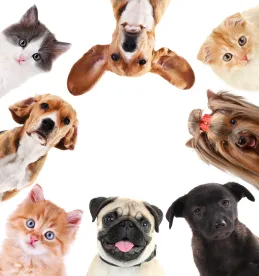As of 2015, the Food & Drug Administration (FDA) had become aware of more than 5,000 reports of American dogs that became sick or died after eating chicken jerky pet treats that were made in China, but marketed and sold by allegedly reputable food companies here in the U.S. The reports of pet deaths and recalls of nearly 150 major brands of pet foods, which surfaced as early as 2007, sent American pet owners into a frenzy. Trusted, widely advertised brands of pet treats that were meant to be a “reward” to companion animals were instead seen as deadly killers. The three top brands of chicken jerky treats among those cited in legal complaints included “Waggin’ Train” and “Canyon Creek Ranch” produced by Nestle Purina PetCare Co., and “Milo’s Kitchen” dog treats produced by the Del Monte Corp. These products were all made and supplied by a Chinese manufacturer, JOC Great Wall Corp., Ltd. of Nanjing, China. The FDA reported that the deaths were the consequence of combining melamine and cyanuric acid, which reacted in the pets eating these treats, causing kidney failure. The FDA has also made pet owners aware that manufacturers do not need to list the country of origin for each ingredient used in their products, and therefore products that consumers may see as “safe” for their companion animals to consume may still contain ingredients sourced from China or other countries that export to the U.S.
So what happens when a pet food company labels its product as “Made in the USA,” but the product contains ingredients obtained from other countries? On January 11, 2016, Tyson Foods became the newest pet food and treat manufacturer to be sued in a class action lawsuit that was filed in the Sacramento Division of the U.S. District Court for the Eastern District of California. The suit alleges that Tyson labels certain pet treat products as made in the U.S., but should not because some of the product ingredients and components are actually sourced from outside this country. (A lawsuit against the manufacturer of “Milo’s Kitchen” dog and cat treats was filed simultaneously, making near identical accusations.) Specifically, the lawsuit claims that Tyson pet treat ingredients contain tapioca and vitamin, mineral, and amino acids that are not produced in the U.S. and, for this reason, Tyson should not be able to print “Made in the USA” on its pet treat labels. Tyson has publically defended that it does not agree with the lawsuit, stating that its pet treats are made with meat and poultry produced in the U.S.
While there has not yet been any word as to how Tyson’s insurers will respond to the lawsuit, if trends hold true, it is possible that Tyson will be denied coverage. Most companies like Tyson have standard-form commercial general liability (CGL) policies that would provide coverage for most claims. However, in the context of these “truth in labeling” sorts of claims, CGL insurers often assert that because there is no “bodily injury” or “advertising injury,” their policies do not apply. With today’s heightened consumer scrutiny of product labels, and with these sorts of lawsuits on the rise, companies and food manufacturers should take a hard look at the allegations in these sorts of complaints to determine whether they are broad enough to trigger a CGL policy.
Americans love their pets. In fact, approximately 40 percent of all families in the United States share their lives with a cat or dog, and that number continues to grow each year. Americans are also becoming more educated about the foods they feed themselves and their families. The “buzzwords,” as we like to call them, are everywhere – all natural, organic, pure, healthy, non-GMO – and, to those who know of the jerky treat pet deaths – Made in the USA. American consumers, therefore, have cause to be skeptical about what is actually in the food that they are purchasing for themselves, their children, and their pets. Currently, only automobile, textile, wool, and fur product manufacturers are required to disclose U.S. origin content, according to information from the Federal Trade Commission’s (FTC) website, which states: “There is no law that requires most other products sold in the U.S. to be marked or labeled Made in USA or have any other disclosure about their amount of U.S. content.” Until the FDA and FTC enact stricter guidelines for food manufacturers, it is inevitable that more lawsuits will be filed.
If you are a pet food manufacturer, distributor or an insurance carrier who insures pet food manufacturers or distributors, these sorts of issues and the rise of class action lawsuits raise critical issues related to exploration of insurance policy coverage at an early stage. Ensuring proper coverage can avoid liability in today’s dog-eat-dog [treat] world of heightened consumer awareness and increase in legal claims.




 />i
/>i

